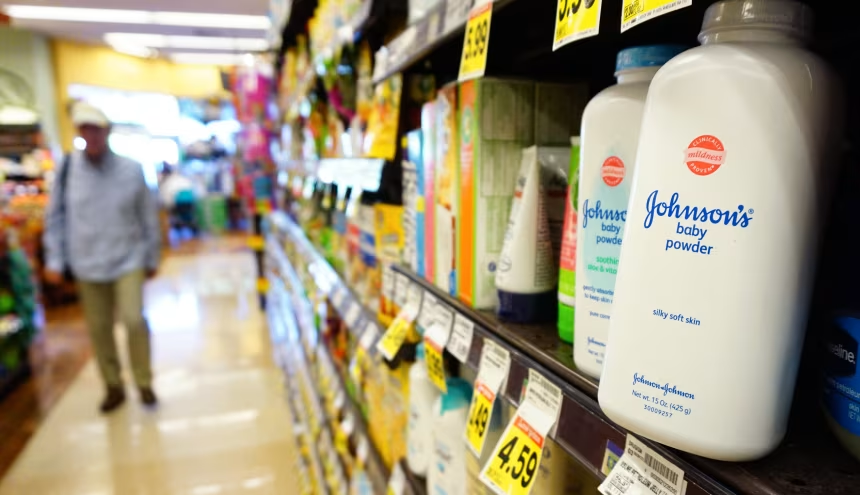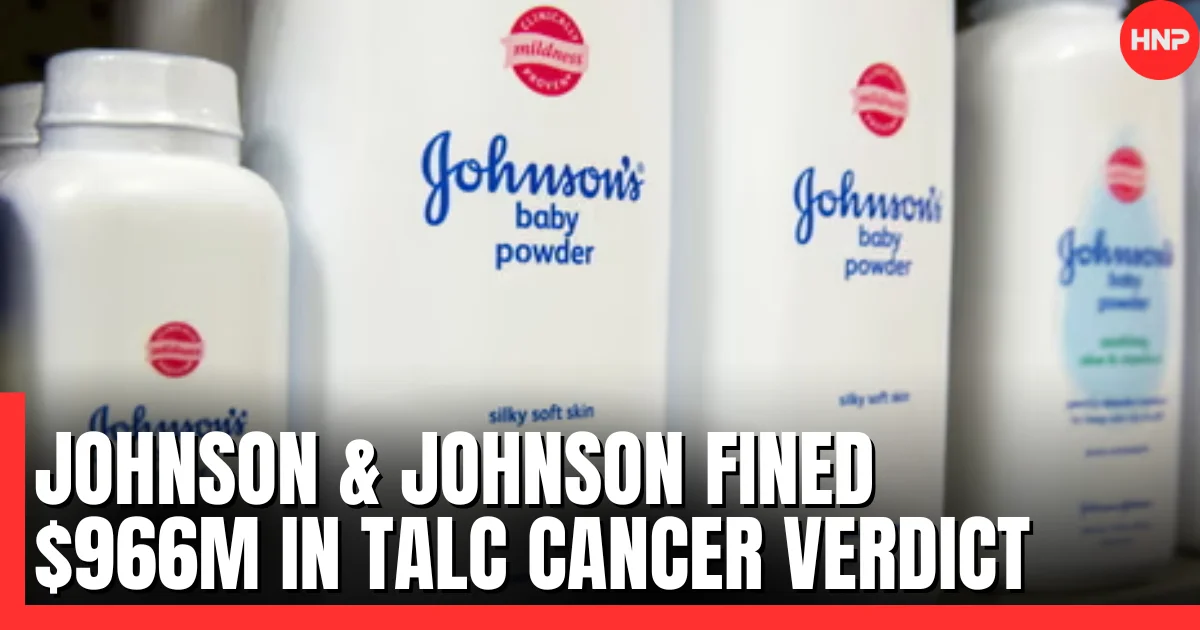A jury orders Johnson & Johnson to pay $966M in a talc cancer case. Learn the verdict details, appeal plans, and what it means for future lawsuits.
Table of Contents
Johnson & Johnson talc $966 million lawsuit
A Los Angeles jury has ordered Johnson & Johnson (J&J) to pay $966 million to the family of a California woman who died from mesothelioma, marking one of the largest verdicts yet in the company’s ongoing talc-related litigation.

The jury found J&J liable for the death of Mae Moore, who passed away at age 88 in 2021. The case alleged that J&J’s talc-based baby powder products contained asbestos fibers, leading to her rare cancer.
Background: How the Case Unfolded
Moore’s family sued J&J the same year she died, claiming the company’s talc products directly caused her illness. On Monday, the Los Angeles jury awarded $16 million in compensatory damages and $950 million in punitive damages, according to court filings.
However, legal experts note that the punitive damages could be reduced on appeal, as the U.S. Supreme Court generally limits such awards to no more than nine times the compensatory damages.
Johnson & Johnson Plans to Appeal
Erik Haas, J&J’s worldwide vice president of litigation, called the verdict “egregious and unconstitutional.” He stated that the company will immediately appeal the decision.
Haas criticized the verdict, arguing that the plaintiff’s attorneys relied on unreliable scientific evidence that, in his view, should not have been presented to the jury.
Johnson & Johnson has consistently stated that its baby powder is safe for use, asserting that the product has never contained asbestos or posed cancer risks. In 2020, the company discontinued its talc-based baby powder in the United States and transitioned to a cornstarch-based version.

Why It Matters
This case adds to the mounting legal pressure on Johnson & Johnson, which is currently facing over 67,000 lawsuits from plaintiffs who claim they developed cancer after using talc-based products.
- Most of the lawsuits involve ovarian cancer, while a smaller number, like Moore’s, involve mesothelioma.
- J&J has tried multiple times to resolve these cases through bankruptcy filings, but U.S. courts have rejected the proposals.
- Several substantial verdicts have been issued against the company in the past year, though J&J has succeeded in overturning or reducing some awards on appeal.
Expert Reactions
Trey Branham, attorney for Moore’s family, said the verdict sends a clear message:
“We’re hopeful that Johnson & Johnson will finally accept responsibility for these senseless deaths.”
Meanwhile, legal analysts expect the verdict to influence ongoing settlement talks and investor confidence, given the potential financial exposure tied to the talc litigation.
Broader Legal and Financial Implications
The talc litigation remains a major risk factor for J&J’s reputation and balance sheet. Despite some legal wins, the company faces a growing wave of state-level trials and public scrutiny over its product safety claims.
- Some verdicts have exceeded $200 million, although many were later reduced or dismissed.
- Analysts note that continued litigation could pressure J&J’s valuation and impact investor sentiment, particularly in the healthcare and pharmaceutical sectors.
FAQs
1. What was the Johnson & Johnson talc verdict about?
A Los Angeles jury ordered J&J to pay $966 million to the family of Mae Moore, who died from mesothelioma allegedly caused by asbestos in talc products.
2. Will Johnson & Johnson appeal the verdict?
Yes. The company has announced plans to appeal, calling the verdict unconstitutional and based on “junk science.”
3. Does Johnson & Johnson still sell talc-based baby powder?
No. J&J discontinued talc-based baby powder in the U.S. in 2020 and switched to a cornstarch formula.
4. How many lawsuits is J&J facing over talc products?
The company faces over 67,000 lawsuits, mostly related to ovarian cancer, with a smaller number tied to mesothelioma claims.
5. Could the $966 million verdict be reduced?
Yes. Courts often reduce large punitive damages, and J&J has successfully appealed similar verdicts in the past.
Conclusion
The $966 million talc cancer verdict marks another major legal setback for Johnson & Johnson, underscoring the financial and reputational risks tied to its decades-long baby powder litigation. As appeals unfold, the outcome could influence future settlements and the company’s broader strategy.
Follow HNP Times for the latest updates on business, legal, and corporate accountability news.


